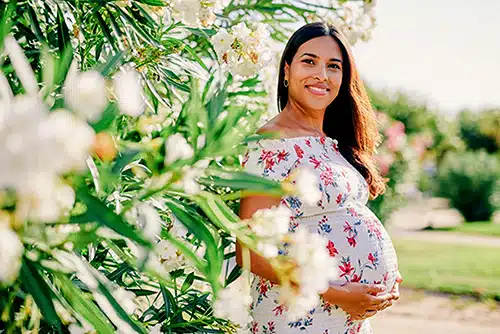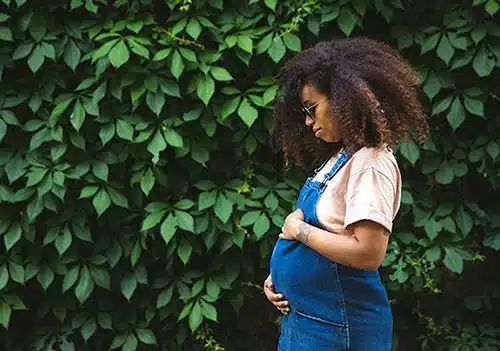
Whether you want to find a family that shares your heritage or ensure your child’s adoptive parents will honor your cultural background, there are many amazing, loving families prepared to embrace these important aspects of your child’s identity.
This guide will help you understand how to choose adoptive parents who will honor your child’s cultural heritage, communicate your expectations effectively, and maintain involvement in your child’s cultural education through open adoption.
Table of Contents
- How to Find the Right Adoptive Family for Your Child’s Birth Culture
- Heritage Matching Options
- Communicating Your Cultural Expectations
- Sharing Your Culture
- Building and Maintaining Your Role in Your Child’s Life
- Benefits of a Connection to Birth Culture: What Research Tells Us
- How to Make Sure Your Child’s Birth Culture Thrives
How to Find the Right Adoptive Family for Your Child’s Birth Culture
When you choose an open adoption plan, you have the opportunity to search for the perfect adoptive family who will instill the values and cultural education you wish for your child. Consider these key factors when browsing family profiles and speaking with hopeful adoptive parents.
Community and Environment
Does the adoptive family live in a culturally diverse area? Living in a diverse community means your child will naturally encounter people from many backgrounds, including their own. This exposure helps normalize diversity and provides opportunities for cultural connections that wouldn’t exist in other areas.
Will your child see people from her culture in positions of authority? Representation matters a lot for a child’s self-image. When children see people who look like them in leadership roles—as teachers, doctors, business owners, or community leaders—it reinforces that they too can achieve anything.
Does the community offer cultural resources and support systems? Look for families living in areas with cultural centers, festivals, museums, restaurants, and other institutions that celebrate your child’s heritage. These resources will be invaluable as your child grows and develops questions about their identity.
Family Connections and Openness
Does the adoptive family already have friendships and connections with people from your child’s culture?
Families who already have diverse social circles are more likely to provide authentic cultural experiences for your child. They’re also more likely to understand the importance of cultural education and have existing resources to draw upon.
Will the adoptive family actively seek out cultural role models for your child? The best adoptive parents don’t just wait for cultural opportunities to present themselves—they actively create them. Ask potential families about their commitment to finding mentors, coaches, healthcare providers, and other influential figures from your child’s cultural background.
Are they open to learning about and participating in cultural traditions? Look for families who express genuine interest in learning about your culture, not just tolerance for it. The difference between participation and just acceptance can impact your child’s sense of cultural pride.
Heritage Matching Options
Heritage and culture are foundational elements to a child’s identity. If finding a family that shares your heritage is important to you, many agencies can help connect you with families who match your cultural background. These families often have:
- Personal understanding of cultural traditions and values
- Existing knowledge of cultural history and significance
- Natural connections to cultural communities
- Language skills that can be passed to your child
- Extended family members who share your child’s heritage
However, remember that sharing the same heritage isn’t the only path to cultural preservation. Many families from different backgrounds have successfully raised culturally aware and proud children by being committed to learning and honoring their child’s birth culture.
Communicating Your Cultural Expectations
Good communication is at the heart of any successful relationship, including in adoption. Being honest and upfront about your expectations will help ensure your child grows up with the cultural education you envision.
Let them know how important it will be for them to teach your child about her heritage. Here are some of the many ways that adoptive families are encouraged to honor their transracial adopted child’s heritage:
Educational Expectations
Adoptive families first educate themselves about your child’s culture through:
Learning from Authentic Sources:
- Reading books and articles by authors from your child’s culture
- Consuming media created by people within your cultural community
- Learning about both historical context and contemporary issues
Building Genuine Relationships:
- Making friends with people within your child’s cultural community
- Participating in cultural organizations and events
- Seeking mentorship from cultural community leaders
Understanding Traditions and Customs:
- Learning about important celebrations, holidays, and their meanings
- Understanding traditional foods and their cultural significance
- Exploring language, music, art, and storytelling traditions
Daily Integration Discussions
Talk with potential adoptive families about how they plan to introduce your child to their culture through:
Holiday and Tradition Celebration:
- How they plan to honor important cultural holidays
- Ways to add cultural elements into everyday family life
- Respect for cultural customs and their proper observance
Community Integration Plans
Social Environment:
- Plans to make sure your child has friends and role models from their culture
- Commitment to living in or frequently visiting diverse communities
- Understanding of the importance of cultural representation in your child’s life
Educational Choices:
- Consideration of schools with diverse student bodies and cultural programs
- Plans for extra cultural education if needed
- Understanding of how to advocate for your child’s cultural needs in educational settings
Difficult but Important Conversations:
- Age-appropriate discussions about race, racism, and cultural pride
- Understanding of social issues that impact your child’s cultural community
- Preparation to help your child navigate potential discrimination
Sharing Your Culture
Don’t just talk about culture in general terms—share the specific aspects that matter most to you and your family:
Family Traditions:
- How your family celebrates important cultural events
- Special recipes or foods that hold meaning for your family
- Customs or practices that have been passed down through generations
Meaningful Cultural Items:
- Books, music, or art that hold special significance for you
- Stories about your family’s cultural history
- Objects or symbols that represent your heritage
Personal Connections:
- What aspects of your culture bring you the most pride
- Cultural values that you hope your child will embrace
- Community connections that might be valuable for your child’s future
Building and Maintaining Your Role in Your Child’s Life
One of the greatest advantages of open adoption is your ability to remain involved in your child’s cultural education. As your child grows, you can share stories and answer her questions. You can also be there to help her process the world events she witnesses and any race-related interactions she has in her own community. Here’s how you can maintain this important connection:
Regular Contact Opportunities:
- Plan calls or visits around important cultural holidays
- Share stories about your family’s cultural background
- Answer questions as your child develops curiosity about their heritage
Cultural Celebrations Together:
- Celebrate certain traditions and holidays with your child’s adoptive family
- Teach traditional recipes or crafts during visits
- Share the significance and history behind cultural practices
Personal Story Sharing:
- Tell stories about your childhood and cultural experiences
- Share family history and cultural heritage
- Help your child understand their place in culture
Processing Experiences:
- Help your child understand world events that affect their cultural community
- Provide perspective on race-related exchanges they may experience
- Offer guidance that comes from lived experience within the culture
Cultural Navigation:
- Help your child explore questions about identity as they arise
- Support them in finding their own relationship with their cultural heritage
- Provide an authentic cultural perspective that adoptive parents may not possess
Future Planning:
- Plan culturally significant trips or experiences as your child grows
- Connect them with cultural community members and resources
- Support their exploration of cultural interests and talents
Benefits of a Connection to Birth Culture: What Research Tells Us
Understanding the research on cultural identity in adoption can help you make informed decisions:
Psychological Benefits:
- Children with a strong cultural identity often show higher self-esteem
- Cultural pride can provide strength against discrimination
- Understanding heritage can contribute to a stronger sense of self
Social Benefits:
- Cultural connections can provide important peer relationships
- Community involvement can offer mentorship and support systems
- Cultural competency can be valuable in increasingly diverse societies
How to Make Sure Your Child’s Birth Culture Thrives
Remember that in open adoption, you can remain actively involved in your child’s life. This ongoing relationship can be one of the most meaningful aspects of the adoption experience.
Ensuring your child grows up with a strong connection to their cultural heritage is one of the most important gifts you can give them. Through careful selection of adoptive parents, clear communication about your expectations, and ongoing involvement in your child’s cultural education, you can help create a foundation for cultural pride that will serve your child throughout their life.
Remember that cultural identity is a journey, not a destination. Your child’s relationship with their heritage will evolve as they grow, and that’s perfectly normal. What matters most is that they have supportive adults in their lives, like you, who will help them explore, understand, and take pride in their identity.
By choosing adoption professionals who understand the importance of cultural considerations and working with adoptive parents who share your commitment to honoring your child’s heritage, you’re taking important steps to ensure your child will grow up knowing and celebrating the cultural background you’ve given them.
Editor’s Note: This article was originally published on July 24, 2020, and has since been updated.
Mardie Caldwell, C.O.A.P., is nationally recognized as an expert on open adoption. A Certified Open Adoption Practitioner (C.O.A.P.), Caldwell is the founder of Lifetime Adoption Center, established in 1986. She has assisted in over 2,000 successful adoptions and was one of the first adoption professionals on the Internet.
Caldwell's life work is dedicated to educating and helping birth parents find the right adoptive parents for their child. She spreads the word about modern adoption through speaking appearances, webinars, online resources, and as a podcast show host.
She has written several award-winning books, including So I Was Thinking About Adoption, the first book of its kind. There are many reasons women choose adoption, and this short book is a comprehensive resource to make the best plan for you and your baby. Caldwell wrote So I Was Thinking About Adoption as a handy guide to the details of the adoption process.
Caldwell has made over 150 media appearances, including ABC News, CBS News, Larry King Live, CNN Headline News, NBC's The Today Show, CNN's The Campbell Brown Show, NBC News, KGO Newstalk Radio, CNN's Black in America II, MSNBC, Fox, PBS, BBC, and Dr. Laura.






0 Comments